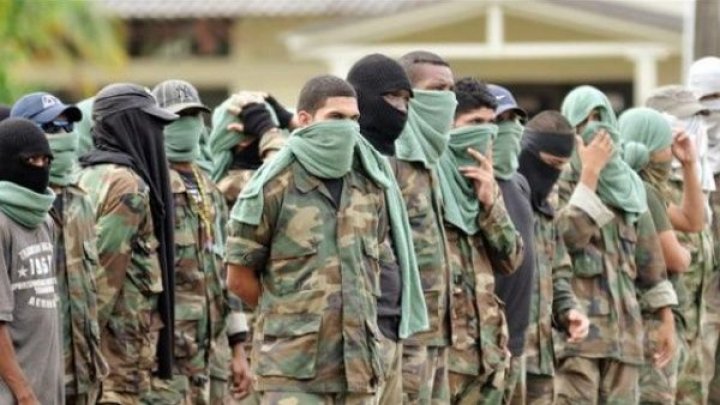Armed conflicts in northeast Colombia have forced nearly 7 000 civilians to flee their homes and 80 schools to close
 publika
publika
Continued armed conflicts between different groups in Catatumbo in northeast Colombia have forced nearly 7,000 civilians to flee their homes and 80 schools to close.
Military conflicts between the Colombian rebel group National Liberation Army (ELN) and the Colombian guerrilla group Popular Liberation Army (EPL) recently erupted in Catatumb in Norte de Santander province bordering Venezuela.
As conflict intensified, the armed forces blocked several major roads on April 15, which had affected the travel of people from dozens of neighboring villages and the transport of daily supplies.
As a result, 7,000 local residents so far have escaped from the war-torn area, with about 80 schools being shut down.
After the multi-party negotiation, the armed forces had removed the road barriers on Monday morning to ensure the passage of vehicles used for transporting goods.
However, those displaced residents said they won't come back until the overall situation greatly improves.
At the end of April, the Colombian defense ministry deployed additional 2,000 soldiers to ease the security situation here.
Some experts said the military presence is far from enough to maintain peace in the area, which was under the control of the Revolutionary Armed Forces of Colombia (FARC).
FARC, the country's largest rebel group, signed a peace agreement with the Colombian government in 2016 to end more than 50 years of conflict.
Naryi Vagas, a researcher of Colombia Post-War Peace Foundation, said that the government should focus on improving infrastructure, changing the original illegal economic model, and guiding people to stop planting drug crops cocas. By doing so, the illegal economic sources of rebel groups will be cut off, which will help improve the security.
"The government force has existed in the area, but not just the military presence. On the one hand, more efforts should be made in building schools, power and water facilities, which are insufficient in the area. On the other hand, the government should change the local economy as cocas is the only crop here. So they should put more efforts into changing the local economic mode," said the researcher.